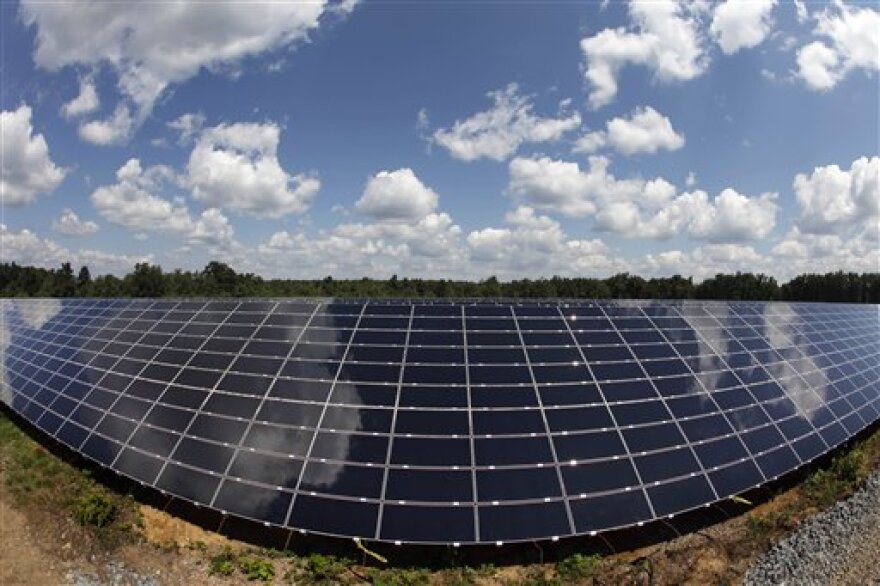When President Donald Trump’s solar tariff took effect four months ago, it sent shockwaves through the solar energy industry.
Yet while big solar installation companies have announced a halt to more than $2.5 billion in projects, Pennsylvania solar installers have fared better.
Joe Morinville, president of Pittsburgh-based installer Energy Independent Solutions, anticipated it would turn out this way.
“I believe we were penalized for the tariff increases in 2017,” he said.
He noticed an uptick in cost for solar panels amid rumors that Trump would impose a tariff. But now that Trump’s 30 percent tariff on foreign-made panels has taken effect, he said the price has stayed steady, if not dropped slightly.
That is good news for companies like his, which install residential and commercial energy projects. But the economics are different for bigger utility-scale projects that exist outside Pennsylvania.
“When you’re dealing with a large project like that, it’s almost done like an assembly line,” Morinville said. “One guy’s dropping this, the next guy’s dropping that, this guy’s bolting it together, so it just goes very, very quickly. You get a lot of efficiencies.”
Labor makes up a smaller portion of the overall cost, so price increases for materials — like the panels or steel or concrete — can have a big impact on the final cost.
For example, he said if Trump’s steel tariff leads to a several-cents-per-watt spike for installers purchasing steel, it would have a greater effect on the installation of utility-scale solar projects than smaller ones in Pennsylvania, which hinge more on labor.
Morinville said he anticipates panel prices are going to drop over the next year as the manufacturing sector of the solar industry adapts to several developments.
Foreign solar manufacturers are setting up plants in the United States to get around the tariff, and are ramping up production.
On top of that, China recently announced it would no longer subsidize utility-scale solar projects. As a result, he said he expects a glut of Chinese panels on the market.
Morinville said a boost in supply could drive down price. That ultimately helps Pennsylvanians who want to install solar on their rooftops.
Sharon Pillar, a Pittsburgh-based solar energy consultant, said the boom in domestic solar panel manufacturing has not come to Pennsylvania, but there’s potential given that other related industries already exist here, such as fabrication.
“We are situated for all of that,” she said. “It’s just a matter of our government leaders setting up the environment to do that.”
She said offering incentives to solar manufacturing companies could help lure them to Pennsylvania.
Read the rest of this report on the site of our partner, StateImpact Pennsylvania.




